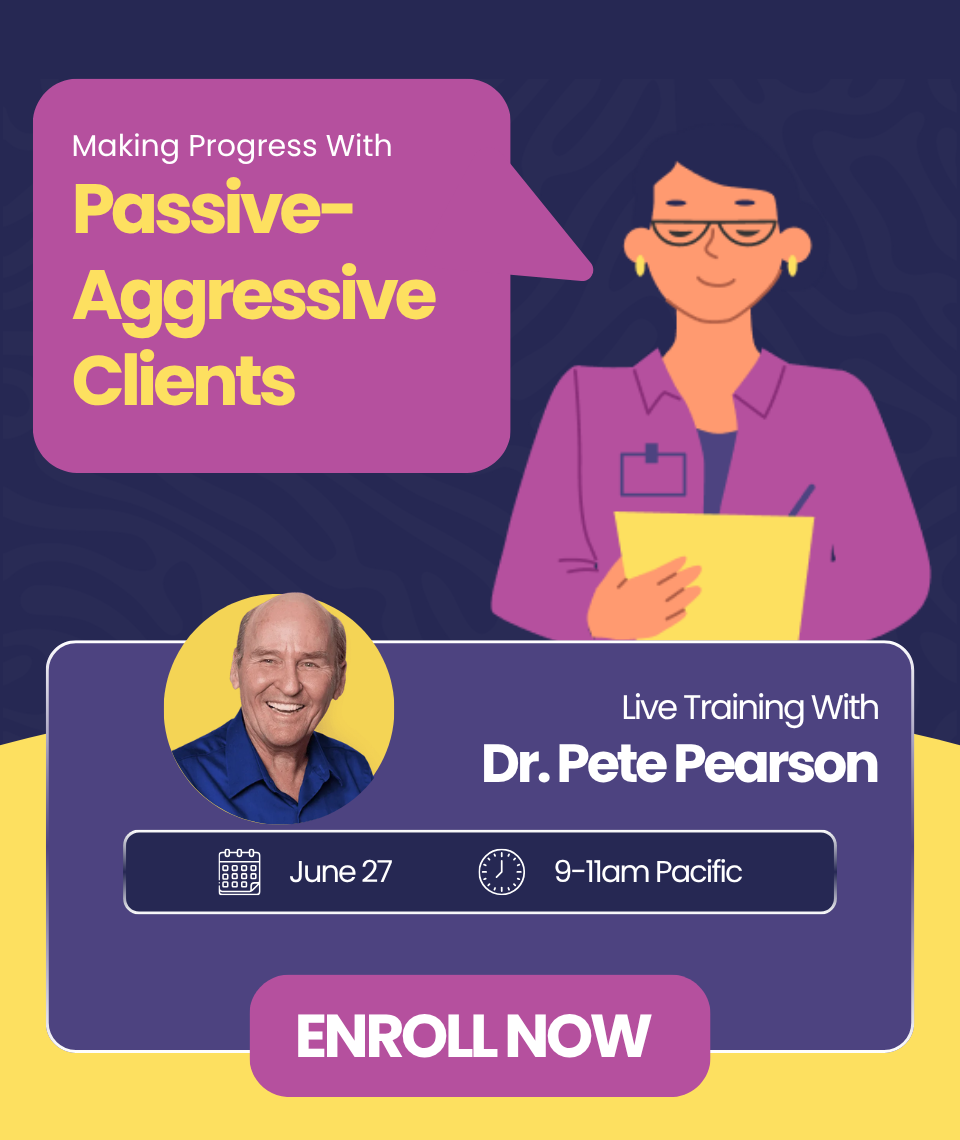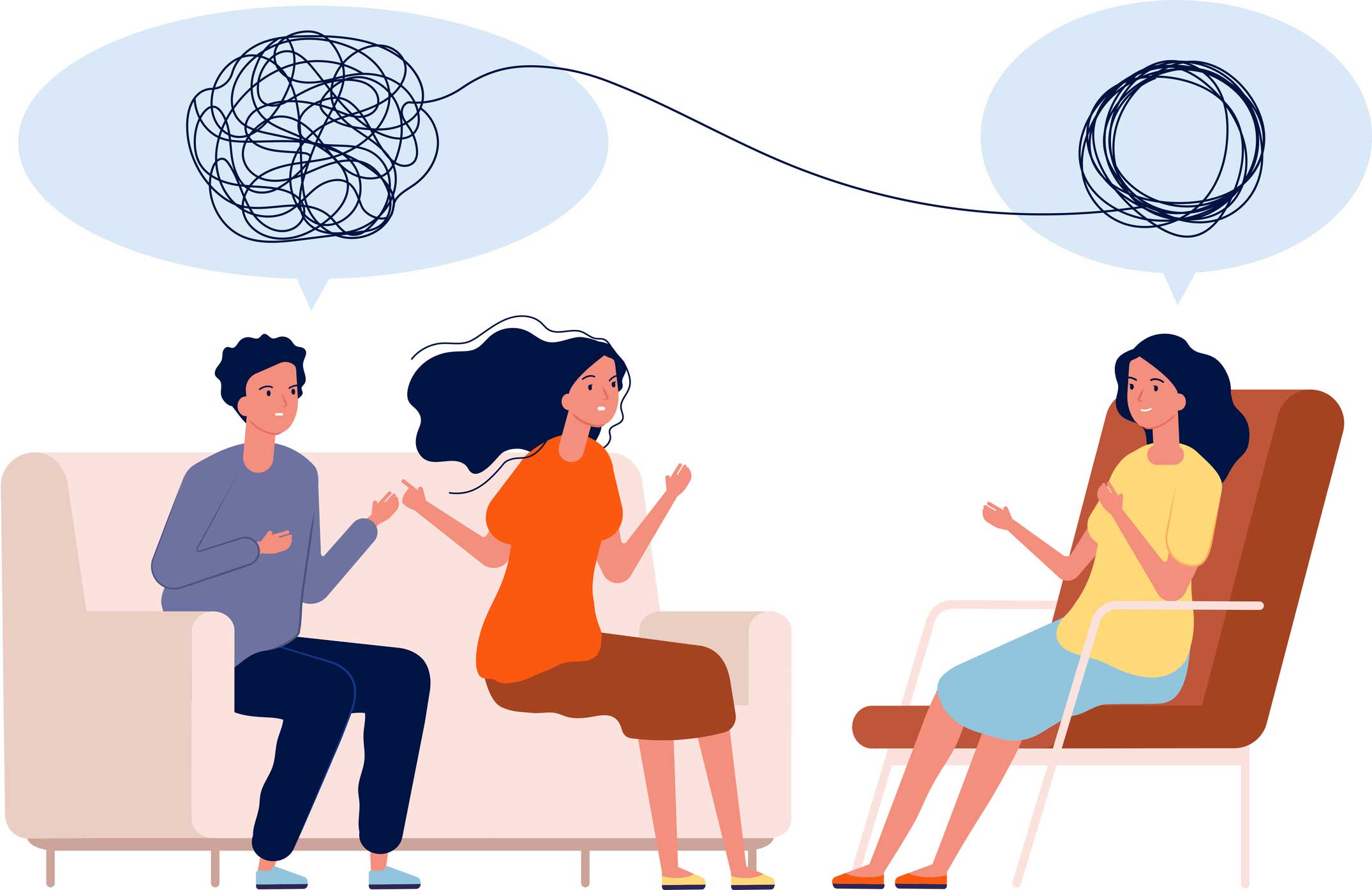A few weeks ago, Dr. Peter Pearson and I were talking with fellow therapists about a pattern we’ve all fallen into at one time or another. Pete is my husband and Couples Institute co-founder.
We’re working with two partners who seem hopelessly stalled. One or both have such deep defenses that we feel ourselves walking in circles, session after session.
Conversations may be laced with denial, blame, and resentment, yet neither partner will look deeper at the possible causes. Or things might bounce along brightly, suggesting the denial that often feels like sunshine over troubled waters. Over time, we begin to feel frustration.
There's an urge to do something, anything, to break the deadlock.
What’s going on?
In our discussion, Pete pointed out that, as therapists, it’s only natural for us to want change. We want to open the door for understanding, caring, and mutual support.
But what’s likely to happen when we ask guarded, defensive partners to share their innermost thoughts?
Usually, our bid for openness will be met with even more resistance, leading us away from where we’re hoping to be.
When defensiveness is a life script
Not all intimate partners have built rocky walls around their hearts, but quite a few have. These are people living with acute or complex trauma that makes it nearly impossible for them to trust anyone. They don’t relate well to others, and the process of therapy may make them feel handled, controlled, and manipulated.
Given their past experiences, it’s no surprise that these individuals will do almost anything to feel safe. But what they’ve sacrificed in the bargain for safety is the opportunity to learn, grow, and change.
Who should drive the process?
When you’re working with people who’ve made it their life’s work to avoid introspection, ask yourself a few questions. Am I taking on too much responsibility here? Do I feel it’s my job to do all the work for them?
As Pete pointed out, we sometimes see things through a medical model that urges us to “fix” people. This suggests that the duty to create change rests mostly with us. Compare this with the more realistic goal of helping couples find their own motivation and guiding them as they do the work together.
Finding a way in
With guarded, conflict-avoidant couples, it’s essential to accept a slower pace. This gives you the chance to witness the tiniest steps forward and offer abundant praise.
Make it your goal to spark curiosity in partners so they can adopt a spirit of discovery about each other and their relationship. You can model curiosity as you search for examples of positive, nurturing actions they take now or have taken in the past.
Pete gave an example of dialogue he might use with a couple whose early relationship was full of spontaneity, romance, and mutual appreciation.
“I am thinking back to something you said earlier … I found it really delightful to hear. You said that when you first got together, you had such great times! I remember you saying you offered each other so much praise and encouragement. That’s really wonderful … it’s something that the strongest couples do for each other.”
You might emphasize that this is a skill the couple already knows. “I can see you know how to give praise and how to accept praise. This is such an essential skill, such a good sign for your relationship.”
A chance for them to work together
From there, you might guide the couple toward a conversation of how it feels to give and accept praise. This could lead to a question: “I’m curious to find out if you’d like to flex this muscle a bit … explore what it feels like to give and receive more compliments.”
As things progress, you might invite them to try the Daily Double Challenge, an exercise requiring them to offer praise, support, or positive attention at least once a day and record their experiences. As they share their results with you, this will create natural opportunities to observe and reinforce every step they take toward each other.
Take Action Now
After 40+ years working with couples, Pete and I have learned one simple truth:
Clients don’t resist change – they resist being forced to change.
And that’s exactly why traditional therapy fails with high-conflict couples.
If you’re tired of working harder than your clients… if you feel like you’re pushing a boulder uphill every session… then it’s time for a shift.
In The Growth Formula, Pete will show you exactly how to get even the most stubborn, defensive couples to want to change. Not because you beg them. Not because you “logic” them into it. But because they see the bigger picture. And suddenly, they start moving.
You can join this webinar live on March 14 at 9am Pacific or watch the replay. See everything we’ll cover right here.


 We respect your privacy.
We respect your privacy.




Excellent points and insights. A very good article. Thank you.
The next blog might be on how to approach things when you have a couple who aren’t quite on board for vulnerability AND they are in a relationship crisis and need some changes right away. They aren’t developmentally ready to go deep, but going deep is what is needed to resolve the crisis.
In cases like this, I tend to meet with them individually for a few hours (3-6hr each and usually in one or two session each) and prepare them for the deep work (introducing the methods/approaches, assessing the degree they’re on board, and the like).
I’ve got my first check for a total of thirteen thousand US dollars. I am so energized, this is whenever I first really acquired something. I will work much harder now and I can hardly hang tight for the following week’s installment. Go to the Home tab for more detail. I highly recommend everyone to apply………………. money63 . solar
Thank you for sharing insight into how trauma can put up barriers and complimenting each other helps open the heart.
This made me think of couples were one is in this mode and the other has over time tried to move forward but feels stymied at every turn, unaware of it he or she is up against solid defenses. So the second gives up becomes resigned to being stuck and just becomes negative about the others character. So the motivation isn’t really there from either side, but for different reasons. Maybe this approach would work, but it seems like the slow pace would frustrate the one who originally wanted to move ahead.
The growth formula sounds like just what will help my development, have very resistant couple giving me unconscious anxiety, working online finding it quite challenging